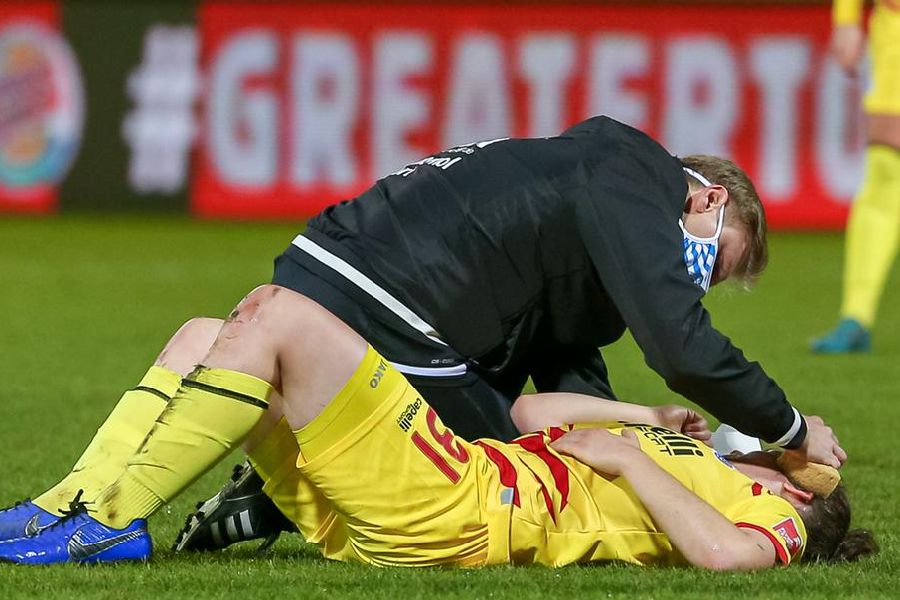The more often a footballer plays, the higher the risk of cognitive disorders. That is the conclusion of a study that has been published in Great Britain. Cognitive disorders include increasing forgetfulness, reduced attention, concentration problems, speech disorders, orientation problems or memory loss.
For the study, which was commissioned by the English Football Association (FA), the researchers analyzed the questionnaires of 468 former British professional footballers over the age of 45. On average, the footballers were around 63 years old. They had to estimate whether they had headed the ball, on a per game or training session basis, between zero and five time, six to 15 time or more than 15 times. Their cognitive abilities were then tested in telephone interviews.
The result was that players with the highest frequency of headers had more than three times the risk of cognitive impairment compared to those in the lowest category.
"Similar results were observed with other cognitive tests noted with dementia and Alzheimer's disease," the study states. However, the researchers qualify this statement, saying that "due to only 13 self-reported cases of physician-diagnosed dementia, the results and conclusion pertaining to these cases should be interpreted with caution.."
In 2019, a study from the University of Glasgow had made headlines. The researchers had evaluated the causes of death of more than 7,500 Scottish professional soccer players. According to this study, the players' risk of dying from Alzheimer's, Parkinson's or other dementias was three and a half times higher than normal.
A study in Sweden — which examined around 6,000 soccer players who had played at least one game in the top Swedish league between 1924 and 2019 — concluded in the spring of 2023 that professional players had about one-and-a-half times the risk of developing Alzheimer's disease or other forms of dementia compared with the general population.
Outfield players, especially defenders, were more at risk than goalkeepers, both the Swedish and Scottish studies said as they are more likely to sustain head injuries in duels and head the ball more often.

For a long time, head injuries weren't taken seriously in the world of football Deutsche Welle
This is also the conclusion reached by the researchers in the new British study. They advise reducing the number of blows to the head to prevent developing cognitive disorders later in life, including dementia. Further studies are needed, they say, for example to determine an upper limit for a responsible number of head concussions.
In the U.S., a ban on headers has already been in place since 2015 for young footballers up to the age of ten. In England and Scotland, header training is prohibited before the age of twelve. In Scotland, there are also restrictions for professionals: they are not allowed to play headers in training the day before and after a match.
The English Premier League have recommended 'that a maximum of 10 higher force headers are carried out in any training week.' This refers to headers after long passes, crosses, corner kicks or free kicks.

The youngest generation are going to be playing in smaller formats in the future Deutsche Welle
The German Football Association (DFB) wants to take a different approach: From the 2024/2025 season, children's and youth football will be reformed up to the age of eleven. Then, for example, the youngest players will only play two against two or three against three on very small pitches with small goals. A two-year pilot phase is still underway. According to the DFB, "the new forms of competition ensure that headers are virtually eliminated."
However, they say it is also important to practice good heading technique. "Among other things, training headers at a young age should include low practice volumes, the use of lighter balls, sufficient recovery time for the head and initial throwing on with the hand to head the ball."
The research phase of a study on the health of former German professional footballers, in which more than 300 former players have participated so far, will continue until the end of September. Results of the "SoccHealth" study are to be published in 2024.












